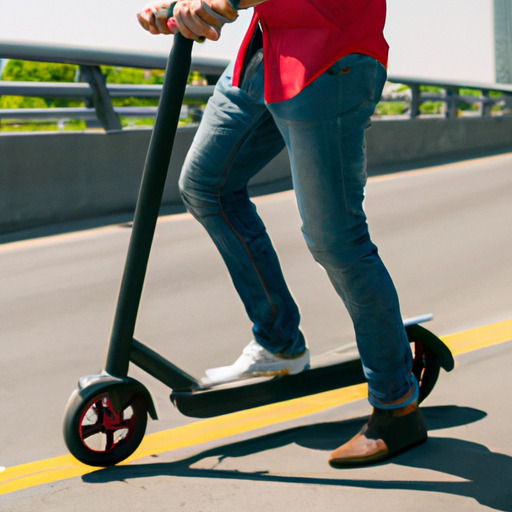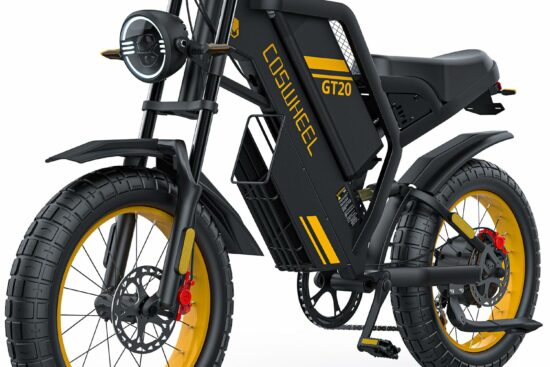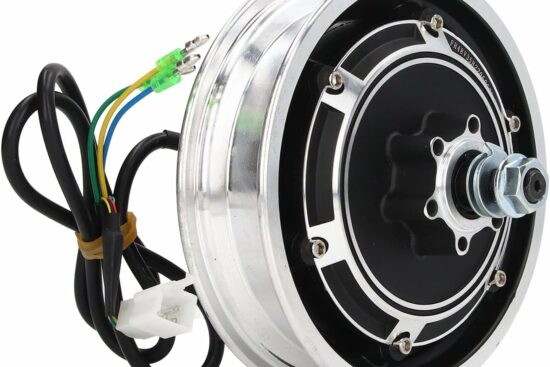
Are you wondering if electric scooters are legal now? It’s a question that many people have been asking lately. With the rise in popularity of electric scooters as a convenient and eco-friendly mode of transportation, it’s important to know the rules and regulations surrounding them. In this article, we’ll dive into the current state of electric scooter legality and what you need to be aware of before hopping on one. Whether you’re considering purchasing an electric scooter for yourself or simply curious about their legality, we’ll provide you with the information you need to know. So, if you want to stay informed about whether electric scooters are legal now, keep reading!
If you’re looking for answers about the legality of electric scooters, this article is for you. We’ll break down the current laws and regulations surrounding electric scooters, including where they are allowed to be ridden and what safety precautions are required. Additionally, we’ll explore any potential changes or future developments in the legal landscape for electric scooters. So, if you’re curious about whether you can ride an electric scooter in your city or if you’re interested in learning about the potential risks and benefits, this article will provide you with the information you need. Stay tuned to find out more about the legality of electric scooters now!

Current Legal Status of Electric Scooters
Regulations in Different Countries
In recent years, electric scooters have gained popularity as an efficient and convenient mode of transportation. However, their legal status varies from country to country. In some nations, electric scooters are fully legalized and regulated, while in others they face strict regulations or even outright bans.
For example, in countries like France and Germany, electric scooters are permitted but subject to certain restrictions. Users are required to have a license and wear a helmet. Speed limitations and age restrictions may also be in place. On the other hand, countries like the United Kingdom and Australia have embraced electric scooters, allowing them on public roads with varying regulations.
Local Laws and Ordinances
Beyond national regulations, electric scooter legality is often determined by local laws and ordinances. Many cities and municipalities have specific rules in place to govern the use of electric scooters. These laws may include speed limits, designated areas of use, and requirements for riders to follow traffic laws.
For instance, cities like San Francisco and Los Angeles in the United States have implemented regulations to ensure the safety of both electric scooter riders and pedestrians. These regulations include speed limits in certain areas and the requirement to use designated bike lanes. Local authorities may also require electric scooter companies to obtain permits or licenses to operate in their respective cities.
Permitting and Licensing Requirements
In addition to complying with local regulations, electric scooter riders may be required to obtain permits or licenses to operate their vehicles legally. Some countries and cities have introduced specific licensing systems for electric scooters, similar to those for traditional motorcycles or bicycles.
For example, in some European countries, a driver’s license or moped license is necessary to operate an electric scooter. In other locations, riders may need to take a short online course or pass a written exam to obtain a permit. It is important for riders to familiarize themselves with the permitting and licensing requirements specific to their area to avoid any legal issues.
Safety Guidelines and Requirements
Helmet Usage and Safety Gear
Ensuring rider safety is a significant concern when it comes to electric scooters. Most jurisdictions recommend or require the use of helmets while riding an electric scooter. Wearing a helmet can significantly reduce the risk of head injuries in the event of an accident.
Apart from helmets, riders may also be advised to wear additional safety gear, such as knee and elbow pads. These precautions can help minimize the risk of injuries and provide riders with peace of mind while enjoying their electric scooter.
Speed Limitations
To ensure the safety of both riders and pedestrians, many jurisdictions impose speed limitations on electric scooters. These restrictions aim to prevent accidents and collisions caused by excessive speed.
The maximum speed allowed for electric scooters varies depending on the location. In some areas, the speed limit may be set at 15 or 20 miles per hour, while in congested urban areas, it may be lower. It is essential for riders to be aware of and abide by the speed limits imposed in their local area to avoid any legal repercussions.
Prohibited Areas and Restricted Zones
Certain areas may be off-limits or have restrictions for electric scooter riders. This can include pedestrian-only zones, parks, or specific roads deemed unsafe for scooter use.
To maintain a safe environment for pedestrians and other road users, riders should familiarize themselves with restricted areas and prohibited zones. By respecting these regulations, riders can contribute to a positive perception of electric scooters and help avoid potential conflicts with local authorities.
Potential Benefits of Electric Scooters
Eco-Friendly and Sustainable Transportation
One of the most significant advantages of electric scooters is their eco-friendly nature. As a zero-emission vehicle, electric scooters contribute to reducing air pollution and greenhouse gas emissions. They offer a greener alternative to traditional gasoline-powered vehicles, making them a sustainable transportation option.
By choosing electric scooters for short-distance trips, individuals can actively participate in environmental conservation and strive for a cleaner and healthier planet.
Reducing Traffic Congestion
Another benefit of electric scooters is their potential to reduce traffic congestion in urban areas. As cities become more densely populated, traffic congestion becomes a pressing issue. Electric scooters can alleviate this problem by providing a compact and efficient mode of transportation for short distances.
By utilizing electric scooters, riders can navigate through traffic more easily, reducing the number of cars on the road and ultimately easing congestion. This can lead to smoother traffic flow and shorter commute times for everyone.
Cost-Effective Mode of Travel
Electric scooters offer a cost-effective mode of travel compared to owning and maintaining a car. With rising fuel and maintenance costs, electric scooters provide an affordable alternative for short trips, especially in urban areas where parking expenses can be exorbitant.
Furthermore, electric scooters require minimal maintenance, eliminating the need for frequent visits to the mechanic. With fewer expenses associated with owning and operating a vehicle, electric scooters can offer significant cost savings to riders.

Concerns and Challenges
Pedestrian Safety
While electric scooters offer numerous benefits, concerns regarding pedestrian safety have been raised. The speed at which some riders operate their electric scooters can pose a risk to pedestrians, especially in crowded areas.
To address this concern, regulations limiting speeds in certain zones have been implemented. Additionally, riders are encouraged to be mindful of their surroundings and yield to pedestrians. This can help ensure the safety of both riders and pedestrians, promoting a harmonious coexistence on the streets.
Accidents and Collisions
Accidents and collisions involving electric scooters have also raised concerns among communities. Factors such as reckless riding, lack of awareness among riders and drivers, and inadequate infrastructure contribute to these incidents.
To mitigate this challenge, it is crucial for riders to adhere to traffic rules, maintain safe speeds, and exercise caution while riding. Additionally, local authorities need to invest in infrastructure improvements, such as dedicated lanes and signage, to enhance the safety of electric scooter users on the roads.
Infrastructure Adaptation
The proliferation of electric scooters has highlighted the need for cities to adapt their infrastructure to accommodate this new mode of transportation. Many cities were initially ill-prepared for the sudden influx of electric scooters, leading to cluttered sidewalks and limited parking options.
Cities are now working to address these challenges by implementing designated parking areas and creating clear guidelines for scooter usage. By adapting infrastructure to accommodate electric scooters, cities can foster a more inclusive and efficient transportation system.
Public Opinion and Community Reaction
Supportive Views
Public opinion regarding electric scooters is varied, with proponents highlighting their convenience, environmental benefits, and potential to reduce traffic congestion. Supporters argue that electric scooters provide a practical and accessible mode of transportation, particularly for short distances.
They are seen as an innovative solution to urban mobility challenges, especially in congested cities where traditional transportation options may be inadequate. Furthermore, electric scooters offer individuals an active and enjoyable way to move around, promoting physical activity and well-being.
Opposition and Criticism
However, not everyone is enthusiastic about electric scooters, and opposition and criticism have emerged. Critics express concerns about safety, citing accidents involving riders and pedestrians. Additionally, they question the sharing model, highlighting issues such as improper parking and irresponsible riding behaviors.
Opponents argue that electric scooters can contribute to sidewalk clutter and create hazards for pedestrians, particularly those with disabilities. To address these concerns, cities have implemented regulations and guidelines to promote responsible scooter usage and ensure the safety of all road users.
Public Surveys and Feedback
To gauge public opinion and monitor community reactions, many cities have conducted surveys and sought feedback from residents regarding the use of electric scooters. These surveys provide valuable insights into the benefits and challenges associated with electric scooters and help shape future regulations and policies.
Public opinion plays a crucial role in the ongoing development of electric scooter regulations and can guide policymakers in finding a balance between promoting innovative transportation solutions and addressing safety concerns.
Recent Legal Developments
Adoption of New Regulations
In response to the growing popularity of electric scooters, many jurisdictions have adopted new regulations to address safety concerns and improve the integration of these vehicles into existing transportation systems. These regulations often focus on speed limits, parking guidelines, and user behavior.
By updating regulations and adapting them to the specific needs of their communities, cities can harness the benefits of electric scooters while ensuring the safety and well-being of residents and visitors.
Changes in Existing Laws
In addition to introducing new regulations, some regions have made amendments to existing laws to include electric scooters. This helps establish a clear legal framework for electric scooter users and reinforces their place within the overall transportation ecosystem.
Through changes in existing laws, governments can provide legitimacy to electric scooters and promote their integration as a viable means of transportation.
Legal Battles and Court Decisions
As governments seek to develop regulations for electric scooters, legal battles and court decisions have become commonplace. Electric scooter companies and local authorities have often found themselves at odds regarding operating permits, liability matters, and the interpretation of existing laws.
These legal battles can influence the future of electric scooter regulations, determining the degree to which companies and riders are held accountable, as well as the extent of local government control over their operations.
Impact on Traditional Transportation
Implications for Public Transportation
The rise of electric scooters has the potential to impact traditional forms of public transportation. While electric scooters offer a convenient last-mile solution, they could potentially discourage individuals from utilizing buses, trams, or trains for short distances.
To avoid a decline in public transportation usage, cities need to strike a balance between providing efficient electric scooter infrastructure and maintaining robust public transportation networks. By integrating electric scooters into existing public transportation systems, cities can create a comprehensive and sustainable urban mobility solution.
Competition with Car Rental Services
Electric scooters also present competition for car rental services, especially for short trips within urban areas. Instead of renting a car or relying on ride-sharing services, individuals may opt for the convenience and affordability of electric scooters.
This competition can push car rental services to explore new avenues, such as offering electric scooters as part of their fleet or expanding their services to include micro-mobility options. Ultimately, this could lead to a more diverse range of transportation choices for consumers.
Impact on Bicycle Usage
The introduction of electric scooters has sparked discussions regarding their impact on bicycle usage. Some argue that electric scooters provide a faster and more effortless way to travel short distances, potentially leading to a decrease in bicycle ridership.
However, others suggest that electric scooters and bicycles can coexist, complementing each other rather than competing. Both modes of transportation offer unique benefits, and cities can encourage their simultaneous use by providing adequate infrastructure and ensuring the safety and accessibility of bike lanes and scooter paths.
Strategies for Electric Scooter Manufacturers
Collaboration with Local Authorities
Electric scooter manufacturers can play a crucial role in shaping the regulatory landscape by collaborating with local authorities. By engaging in productive discussions and sharing insights, manufacturers can help develop regulations that balance the needs and concerns of all stakeholders.
Furthermore, manufacturers can work closely with cities to ensure the responsible deployment and operation of their scooters, addressing issues such as parking management and promoting safe riding practices.
Educating Users about Regulations
Another important strategy for electric scooter manufacturers is to educate users about local regulations and guidelines. By providing clear information through mobile apps or accompanying materials, manufacturers can empower riders to make informed decisions while using electric scooters.
Education can help raise awareness about safety practices, promote responsible riding, and encourage compliance with local laws. Ultimately, this can contribute to the positive perception of electric scooters and enhance their integration into urban environments.
Advocacy and Lobbying Efforts
To safeguard their interests and influence policy decisions, electric scooter manufacturers can engage in advocacy and lobbying efforts. By working with industry associations and representing the collective voice of electric scooter companies, manufacturers can advocate for reasonable and fair regulations.
This advocacy can range from promoting safety standards to addressing liability concerns. By actively participating in discussions surrounding electric scooter regulations, manufacturers can contribute to the development of a balanced regulatory framework.
Enforcement and Penalties
Law Enforcement Measures
Enforcement of electric scooter regulations is critical in maintaining order and ensuring compliance. Local law enforcement agencies play a vital role in monitoring rider behavior, addressing safety concerns, and taking appropriate action when violations occur.
Through proactive patrolling and targeted enforcement efforts, law enforcement agencies can deter reckless riding and promote adherence to electric scooter regulations, creating a safer environment for all road users.
Fines and Violations
Violations of electric scooter regulations can result in fines or penalties. These penalties may vary depending on the severity of the violation and local regulations.
Fines for electric scooter violations can serve as a deterrent and encourage riders to adhere to traffic rules and regulations. By imposing penalties for non-compliance, local authorities aim to ensure the safety of riders, pedestrians, and other road users.
Impounding and Confiscation of Vehicles
In some cases, repeated violations or severe safety concerns may result in the impounding or confiscation of electric scooters. This is typically done to address persistent non-compliance or to remove potentially dangerous vehicles from the streets.
Impounding or confiscation of vehicles serves as a strong enforcement measure and emphasizes the importance of adhering to regulations. It also sends a clear message that non-compliance with electric scooter regulations will not be tolerated.
Conclusion
The legal landscape surrounding electric scooters is continually evolving as governments and local authorities strive to balance innovation, sustainability, and safety. While regulations and requirements may differ across countries and cities, it is essential for electric scooter riders to be aware of and comply with local laws to ensure their own safety and promote positive community experiences.
Electric scooters offer numerous benefits, including eco-friendliness, reduced traffic congestion, and cost-effectiveness. However, challenges such as pedestrian safety, accidents, and infrastructure adaptation need to be addressed to fully harness their potential.
Public opinion and community feedback play significant roles in shaping the regulations and policies surrounding electric scooters. By considering the interests and concerns of all stakeholders, governments can develop comprehensive regulations that balance the needs of riders, pedestrians, and drivers.
The future of electric scooters relies on collaboration between manufacturers, local authorities, and riders. By working together and advocating for responsible usage, manufacturers and users can contribute to the development of a sustainable and safe electric scooter ecosystem.























